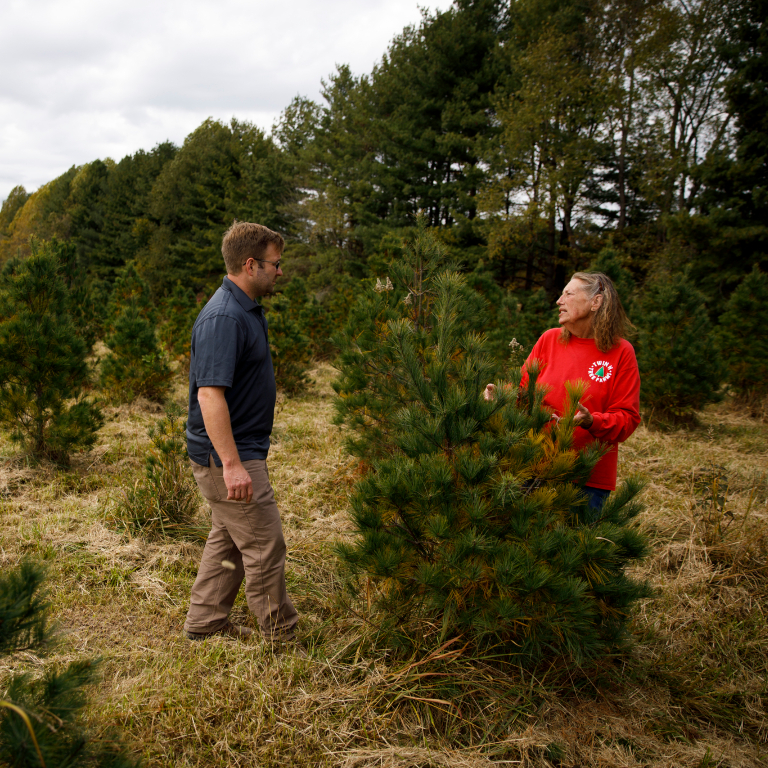Hoosier families are finding fewer and fewer options when they visit their local Christmas tree farms to choose the perfect tree for the holidays. That's because Indiana tree farms are declining -- due in part to farmers aging out of their operations, as well as environmental change and the difficulty of growing short-needled varieties that are highly sought after.
A study led by James Farmer, an associate professor in the Indiana University O'Neill School of Public and Environmental Affairs, highlights a 40 percent decrease in Indiana Christmas tree farms since 2002. The study found that the decline is likely to continue.
Indiana is also outpacing the national decline of tree farm operations. According to the United States Department of Agriculture's census that reflects data collected from 2002 to 2017, across the United States there has been a 27 percent decrease in the number of farms harvesting Christmas trees.
"It looks like in the next five years or so, about 17 to 18 percent of the growers that we surveyed in Indiana, which represents the majority of Christmas tree operations in the state, will stop planting trees," Farmer said.
While the research points to the steady decline in tree farms, consumer demand for real trees is stable. Because of that demand, farmers still in the business are finding it more difficult to provide the trees that consumers want, unless they sell cut trees bought from wholesale growers.
Consumers want short-needle varieties like firs and spruces, but those trees are tougher to grow in Indiana, Farmer said.
"With the climate and the soils, a lot of these trees need to be shipped in from places like Michigan, Pennsylvania, and the Carolinas -- though it is a little far -- in order to meet consumer demand," Farmer said.
Additional coverage by the Chicago Tribune and Indiana Environmental Reporter



